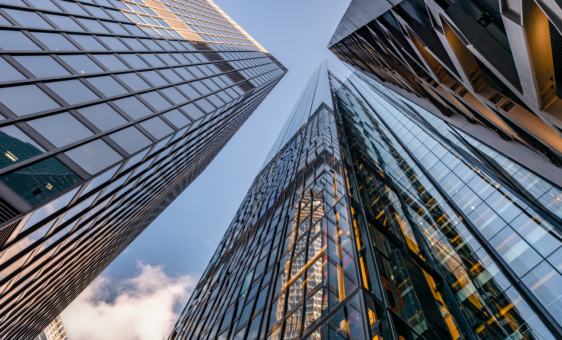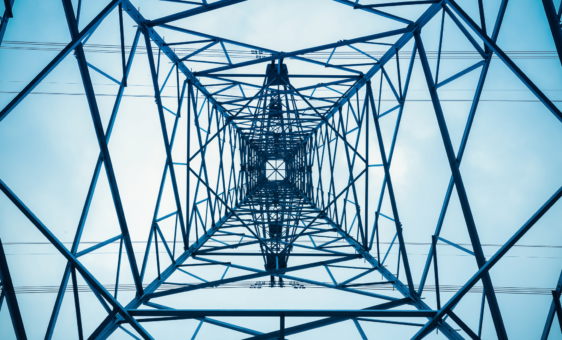As Chinese President Xi Jinping mentioned in his CCP’s 100th anniversary speech on 1 July 2021, China should promote high-quality development of the Belt and Road Initiative through joint efforts, and use China’s new achievements to provide the world with new opportunities; China must also deepen reform and opening up across the board and build up the country’s strength in science and technology.
In a joint statement of the ASEAN-China Special Summit to Commemorate the 30th Anniversary of ASEAN-China Dialogue Relations on 22 November 2021, ASEAN and Chinese leaders agreed to explore mutually beneficial and high-quality cooperation with the Belt and Road Initiative and explore cooperation on a low-carbon, circular and green economy such as the Belt and Road Partnership on Green Development and the Bio, Circular and Green Economy.
In a white paper titled “China and Africa in the New Era: A Partnership of Equals” published by China’s State Council Information Office on 26 November 2021, Chinese President Xi Jinping put forward the principles of China’s Africa policy (sincerity, real results, amity and good faith and the pursuit of the greater good and shared interests), charting the course for China’s cooperation with Africa and providing the fundamental guidelines. In recent years, a number of transport infrastructure projects between China and Africa have been completed and opened to traffic pursuant to the Belt and Road Initiative, including the Addis Ababa-Djibouti Railway, the Mombasa-Nairobi Standard Gauge Railway in Kenya, the No. 1 National Highway of the Republic of the Congo, the Thies-Touba highway in Senegal, and the Port Gentil-Omboue coastal road and the Booué Bridge in Gabon. Following the outbreak of the COVID-19 pandemic, China and Africa have strengthened mutual cooperation in terms of financial assistance and vaccine donation, with China cancelling the outstanding debts of 15 African countries in the form of interest-free loans that matured at the end of 2020. As outlined in the white paper, Chinese and African leaders have strived to continue to support the Belt and Road Initiative and bring the China-Africa comprehensive strategic and cooperative partnership to a higher level.
China’s recent commitment to strengthen ties with its allies in the ASEAN and African countries coincided with the conclusion of the virtual summit between Chinese President Xi Jinping and US President Joe Biden in November 2021, the second call between the two world leaders since US President Joe Biden took office. While the summit represented an ongoing effort by the two largest economies in the world to set aside their differences and enhance cooperation, it produced no major breakthrough in easing tensions that resulted from deep-rooted ideological differences, highlighting China’s need to strengthen regional ties with its allies to counter the US’ China containment policy. The outbreak of the COVID-19 pandemic saw an initial period of downplay and denial of the coronavirus by the US administration and a rare absence of US leadership on the world stage. Filling the global leadership void left by the US in the early stages of the pandemic, China stepped up its vaccine diplomacy by providing over 2.1 billion doses of COVID-19 vaccines to more than 120 countries and organisations, including 50 African countries and the AU Commission, as at 4 March 2022, and is striving to provide a further 1 billion doses to African countries. To contain the spread of the Omicron variant of COVID-19 in recent weeks, China has pledged to donate 600 million doses of vaccines to Africa and send 1,500 medical team members and public health experts to Africa to assist in Africa’s anti-pandemic effort. China’s humanitarian assistance and global leadership role in the course of the pandemic demonstrate its long-term commitment to bring China’s comprehensive strategic and cooperative partnership with Africa and other allies to new heights as the CCP ushers in its second 100-year journey, laying a solid foundation for mutually beneficial cooperation under the Belt and Road Initiative.
China’s strategy to accelerate implementation of the Belt and Road Initiative is also driven by geopolitical factors. US President Joe Biden announced the Build Back Better Initiative during the G7 summit in June 2021, with the goal of creating a “values-driven, high-standard, and transparent infrastructure partnership led by major democracies” to help finance infrastructure projects in the developing world. This initiative was seen as a move to counter Chinese influence in the developing world and as western democracy’s alternative to China’s Belt and Road Initiative. The recent formation of the AUKUS, a trilateral security pact between Australia, the UK and the US in the Asia Pacific region, in September 2021 under which Australia will embark on a military programme to equip its navy with nuclear-powered submarines, is another move staged to counter China. Xi Jinping Thought, the ideologies promulgated by Chinese President Xi Jinping, underpins China’s pledge to preserve international order and promote the development of the Belt and Road Initiative with Chinese characteristics, free from “western intervention into its internal affairs”. As Xi Jinping mentioned in his CCP’s 100th anniversary speech on 1 July 2021, “the party and the Chinese people showed the world that the Chinese people had stood up, and that the time in which the Chinese nation could be bullied and abused by others was gone forever.” It is, therefore, expected that China will counter US containment policy with closer regional ties with its strategic allies through the Belt and Road Initiative.
China’s development objectives of advancing mutual cooperation and regional connectivity with its allies in the next 100 years of the CCP through better implementation of the Belt and Road Initiative to counter ongoing geopolitical and economic tensions with the US present new opportunities for the offshore legal space, from the establishment of offshore investment funds to offshore bond issuances and IPOs with the use of offshore listing vehicles to raise funds for Belt and Road infrastructure projects.
Against the backdrop of the Belt and Road Initiative, recent developments, including (i) China’s new data security law, (ii) the China Securities Regulatory Commission’s proposed rules tightening control of Chinese companies listing abroad on national security grounds, and (iii) the US Securities and Exchange Commission’s adoption of amendments to finalise rules implementing the audit submission and disclosure requirements in the Holding Foreign Companies Accountable Act, are expected to give rise to a trend of US-listed Chinese technology companies incorporated in the Cayman Islands delisting from the US and re-listing in Hong Kong. The past two years saw Alibaba Group Holding Limited, JD.com, Inc., Baidu, Inc., and Bilibili Inc., all of which are US-listed Chinese technology giants incorporated in the Cayman Islands, seeking a secondary listing in Hong Kong. This trend is expected to continue as China ushers in the new era of its Belt and Road Initiative.
The Hong Kong office of Appleby advises on the laws of the Cayman Islands, the British Virgin Islands and Bermuda, being popular jurisdictions of choice for China’s outbound investments under the Belt and Road Initiative. The laws of these jurisdictions offer tax neutrality, regulatory and cost efficiency for Chinese companies looking to invest overseas via the establishment of offshore funds, offshore listings and offshore bond issuances. Company law and regulations in these jurisdictions are also flexible and adaptable to the needs of clients from other jurisdictions. With multilingual offshore legal experts fluent in English, Mandarin, Cantonese and other Chinese dialects specialising in a wide spectrum of corporate and dispute resolution practice areas from 10 global offices (including Hong Kong and Shanghai), Appleby is uniquely positioned to provide a one-stop offshore legal service for its Chinese and international clients.
Locations
Services
Corporate, Listing Services, Funds & Investment Services
Sectors
Energy & Natural Resources, Transport & Logistics, Technology & Innovation



















